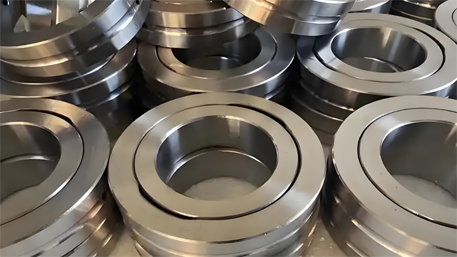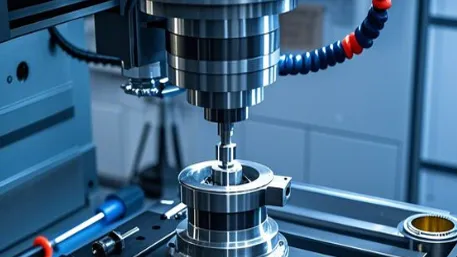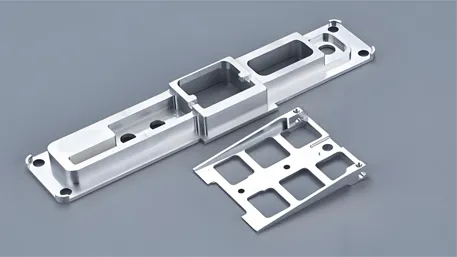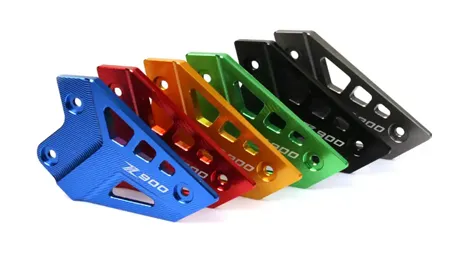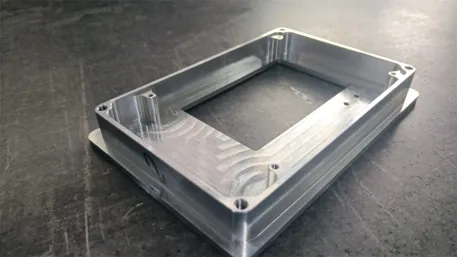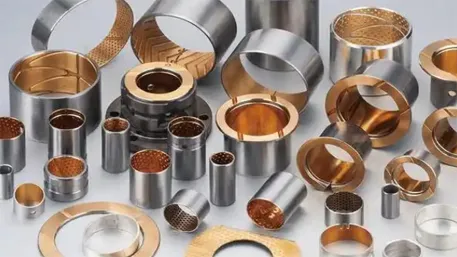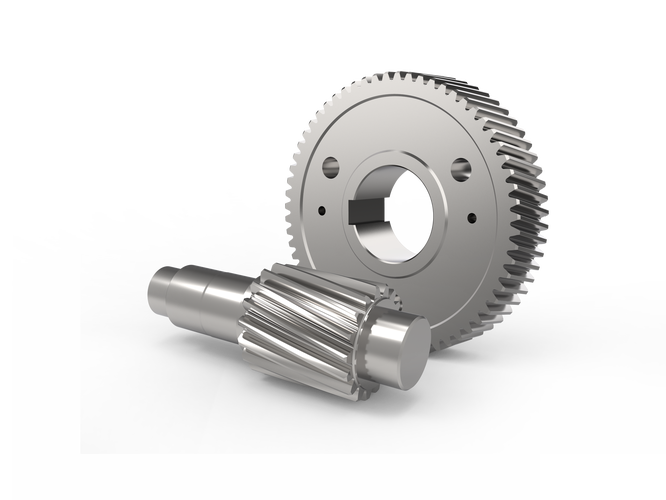In the dynamic field of mechanical engineering, bearings serve as the linchpin for smooth motion and efficient power transmission across diverse industries. Among the various bearing solutions available, custom high sulfur alloy self – lubricating bearings have emerged as a revolutionary choice, addressing the challenges of lubrication, wear, and maintenance in demanding operating environments. Leveraging the capabilities of CNC (Computer Numerical Control) technology, the production of these specialized bearings has reached new heights of precision and customization. This article delves into the technical prowess, customization process, material selection, quality control, and industry applications of custom high sulfur alloy self – lubricating bearings, highlighting their role in enhancing machinery performance.
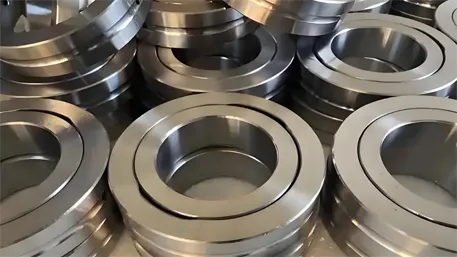
I. Technical Excellence: Redefining Bearing Performance
(A) Exceptional Dimensional Precision
CNC machining systems are meticulously engineered to achieve outstanding dimensional precision in the production of high sulfur alloy self – lubricating bearings. With positioning accuracy reaching ±0.002mm and repeat positioning accuracy of ±0.003mm, we can fabricate bearings with extremely tight tolerances. For example, when manufacturing bearings for high – speed rotating machinery, the inner diameter and outer diameter can be maintained within ±0.002mm, ensuring a precise fit with the shaft and housing. This level of accuracy minimizes radial and axial play, reduces vibration, and significantly enhances the overall efficiency and lifespan of the machinery.
(B) Complex Geometry Machining
Five – axis CNC machining technology empowers the creation of high sulfur alloy self – lubricating bearings with complex geometries. Whether it’s bearings with intricate internal lubrication channels, specialized surface textures for enhanced self – lubrication, or bearings with unique mounting flanges, the five – axis system can execute these designs in a single setup. Compared to traditional machining methods, which often require multiple setups and are more prone to errors, five – axis CNC machining reduces setup – related errors from ±0.015mm to within ±0.003mm. Moreover, it boosts production efficiency by over 60%, significantly shortening the lead time for custom bearings. This enables industries to quickly adapt to evolving design requirements and minimize production delays.
(C) Advanced Self – Lubrication Integration
The production of high sulfur alloy self – lubricating bearings involves the integration of advanced self – lubrication mechanisms optimized through CNC – controlled processes. The high sulfur content in the alloy forms a natural lubricating film on the bearing surface during operation, reducing friction and wear. CNC – controlled manufacturing processes ensure precise control over the distribution and thickness of the sulfur – rich layer. Additionally, techniques such as laser texturing can be employed to create micro – grooves and pockets on the bearing surface, further enhancing the retention and distribution of the lubricating film. This integration of advanced processes ensures that the bearings offer consistent self – lubrication performance, eliminating the need for frequent external lubrication and reducing maintenance costs.
II. End – to – End Customization: Tailoring Bearings to Your Exact Needs
(A) In – Depth Requirement Analysis and Design Conceptualization
When you approach us with your bearing requirements, our experienced engineering team engages in detailed discussions to understand your application, performance expectations, and design preferences. We consider factors such as the operating speed, load conditions (static, dynamic, or oscillating), operating temperature, and environmental factors (corrosive, dusty, or high – humidity). Using state – of – the – art CAD/CAM software, we generate multiple design concepts. We then collaborate closely with you, refining the designs until they perfectly align with your vision. Whether you need a standard bearing with a unique modification or a completely new design for a specialized application, we have the expertise to bring your ideas to life.
(B) Strategic Material Selection and Cost Analysis
Based on the finalized design, we recommend the most suitable high sulfur alloy compositions for your self – lubricating bearings. High sulfur alloy bearings typically contain a combination of elements such as iron, sulfur, and alloying elements like chromium, molybdenum, and vanadium. The sulfur content can range from 1.5% to 3%, depending on the application requirements. Alloys with higher sulfur content offer better self – lubricating properties but may have slightly reduced mechanical strength, while those with lower sulfur content prioritize strength and durability. Simultaneously, we conduct a detailed cost analysis, factoring in material costs, machining complexity, and production volume, to provide you with a transparent and competitive quote.
(C) Precision Manufacturing and Order Tracking
Once you approve the design and quote, production commences. You can monitor the progress of your order in real – time through our dedicated online tracking platform. Our skilled technicians adhere to strict manufacturing standards, using advanced CNC machines, heat – treatment equipment, and surface – finishing tools to produce bearings that meet the highest quality benchmarks. We keep you informed at every stage of the production process, from raw material procurement to the final inspection.
(D) Rigorous Quality Assurance and Timely Delivery
After production, each high sulfur alloy self – lubricating bearing undergoes a rigorous quality inspection. Only bearings that meet our exacting standards are shipped to you. We perform dimensional inspections using coordinate measuring machines (CMMs) to ensure that all critical dimensions are within ±0.002mm. Surface finish measurements are also taken to ensure that the surface texture is optimized for self – lubrication. In addition, we conduct mechanical tests, such as hardness testing, load – bearing capacity testing, and friction coefficient testing, to validate the performance of the bearings. We also offer comprehensive after – sales support, addressing any concerns you may have during the product’s lifecycle.
III. Strategic Material Selection: Choosing the Right Alloy for Optimal Performance
(A) High Sulfur Alloy Compositions
- Iron – Sulfur – Chromium Alloys: These alloys combine the strength and durability of iron with the self – lubricating properties of sulfur and the corrosion resistance of chromium. With a sulfur content of around 2%, they offer a good balance between lubrication and mechanical strength. The chromium content, typically ranging from 5% to 10%, enhances the bearing’s resistance to oxidation and corrosion, making them suitable for applications in environments with moderate corrosive conditions, such as in food processing machinery and general industrial equipment.
- Iron – Sulfur – Molybdenum Alloys: Molybdenum is added to the iron – sulfur base alloy to improve its wear resistance and load – carrying capacity. Alloys with 1.8% sulfur and 2 – 3% molybdenum can withstand high loads and speeds, making them ideal for heavy – duty applications in the mining, construction, and automotive industries. The molybdenum forms hard carbides that reinforce the alloy matrix, reducing wear and extending the bearing’s service life.
- Iron – Sulfur – Vanadium Alloys: Vanadium is incorporated into the alloy to enhance its hardness and strength. Alloys with 1.5% sulfur and 0.5 – 1% vanadium are suitable for applications where high – temperature resistance is required. The vanadium also improves the alloy’s resistance to fatigue, making these bearings a reliable choice for high – stress applications in power generation and aerospace equipment.
IV. Stringent Quality Control: Ensuring Top – Notch Bearing Quality
(A) Raw Material Inspection
All incoming raw materials for high sulfur alloy self – lubricating bearings are subject to strict quality checks. We use spectroscopic analysis to verify the chemical composition of the alloys, ensuring that they meet the required standards. For example, when using an iron – sulfur – chromium alloy, we confirm that the sulfur, chromium, and other alloying elements are within the specified ranges. Additionally, hardness testing, tensile testing, and microstructure analysis are performed to ensure the material’s integrity and suitability for the intended application.
(B) In – Process Monitoring
Throughout the manufacturing process, we employ statistical process control (SPC) techniques to monitor key manufacturing parameters. Regular sampling and data collection help us identify and correct any potential issues promptly. We monitor parameters such as machining speeds, feed rates, heat – treatment temperatures, and surface – finishing conditions. If any parameter deviates from the set values, we can adjust the process in real – time to ensure consistent product quality.
(C) Final Product Validation
Before shipping, each bearing undergoes a comprehensive inspection. We use CMMs to verify dimensional accuracy, ensuring that all critical dimensions are within ±0.002mm. Surface roughness measurements are taken to ensure that the surface texture promotes self – lubrication. In addition, we conduct functional tests, such as friction testing under different load and speed conditions, wear testing over extended periods, and high – temperature resistance testing. Only bearings that pass all these tests are considered ready for delivery.
V. Diverse Industry Applications: Transforming Machinery Performance
(A) Mining Industry
In the mining industry, equipment operates under extremely harsh conditions, with high loads, abrasive dust, and limited access for maintenance. Custom high sulfur alloy self – lubricating bearings are used in various mining machinery, such as conveyor systems, crushers, and drilling rigs. The self – lubricating properties of these bearings eliminate the need for frequent lubrication in dusty environments, reducing the risk of contamination and component failure. Their high load – carrying capacity and wear resistance ensure reliable operation, minimizing downtime and increasing productivity in mining operations.
(B) Construction Industry
Construction equipment, including excavators, loaders, and bulldozers, is subjected to heavy loads, shock forces, and varying operating conditions. High sulfur alloy self – lubricating bearings are installed in critical components such as hydraulic cylinders, pivot joints, and slewing rings. The bearings’ ability to provide continuous self – lubrication reduces friction and wear, even in dirty and wet environments. This leads to improved equipment performance, reduced maintenance costs, and extended service life, enabling construction projects to be completed more efficiently.
(C) Food and Beverage Industry
In the food and beverage industry, hygiene and cleanliness are of utmost importance. Custom high sulfur alloy self – lubricating bearings are used in processing equipment, such as mixers, conveyors, and packaging machines. Since these bearings do not require external lubricants, the risk of product contamination is eliminated. Their corrosion – resistant properties also make them suitable for use in environments with frequent cleaning and exposure to moisture, ensuring the safety and quality of food products.
(D) Automotive Industry
In the automotive sector, high sulfur alloy self – lubricating bearings are used in various applications, including engine components, transmissions, and suspension systems. In engines, these bearings reduce friction, improving fuel efficiency and reducing emissions. Their self – lubricating properties also contribute to quieter operation and longer service intervals. In suspension systems, the bearings can withstand the dynamic loads and vibrations experienced during vehicle operation, enhancing ride comfort and handling.
VI. Frequently Asked Questions (FAQ)
(A) What is the typical precision of custom high sulfur alloy self – lubricating bearings?
Our CNC machining can achieve a dimensional tolerance of ±0.002mm, ensuring precise fit and optimal performance in your machinery.
(B) How do I choose the right high sulfur alloy composition for my bearings?
The choice depends on your application’s specific requirements, such as load, speed, temperature, and environmental conditions. Our experts can assess your needs and recommend the most suitable alloy composition to meet your performance and durability expectations.
(C) What is the lead time for custom bearings?
Lead times vary depending on the complexity of the design and order quantity. Simple designs can be completed in 3 – 5 days, while more complex ones may take 7 – 10 days. Rush orders are available upon request.
(D) Can CNC machining handle custom bearing designs with complex geometries?
Yes, our five – axis CNC machines are capable of fabricating bearings with intricate geometries, including specialized lubrication channels and unique surface textures, to meet even the most demanding design requirements.
(E) How much does it cost to customize high sulfur alloy self – lubricating bearings?
Costs are determined by factors such as material, design complexity, precision requirements, and production volume. While small – batch customization may be relatively costly, economies of scale can significantly reduce per – unit costs for larger orders.
VII. Customer Testimonials
A major mining company approached us to develop custom high sulfur alloy self – lubricating bearings for their conveyor systems. Our team utilized advanced CNC machining and material selection techniques to create bearings that could withstand the harsh mining environment. The new bearings reduced maintenance frequency by 40% and increased the lifespan of the conveyor systems by 30%, resulting in substantial cost savings and improved operational efficiency for the company.
An automotive manufacturer needed self – lubricating bearings for their new line of high – performance engines. We designed and manufactured high sulfur alloy bearings with optimized self – lubrication features. The bearings not only reduced engine friction by 12%, improving fuel efficiency, but also decreased engine noise, enhancing the overall driving experience. The customer was highly satisfied with the performance and reliability of the custom bearings.
Reach Out Now for Your Custom High Sulfur Alloy Self – Lubricating Bearings!
Regardless of your industry or application, our team of experts is ready to collaborate with you. We offer a seamless end – to – end service, from design to delivery. Contact us today to discuss your project requirements and take the first step towards getting top – quality custom high sulfur alloy self – lubricating bearings that will enhance the performance and durability of your machinery.
